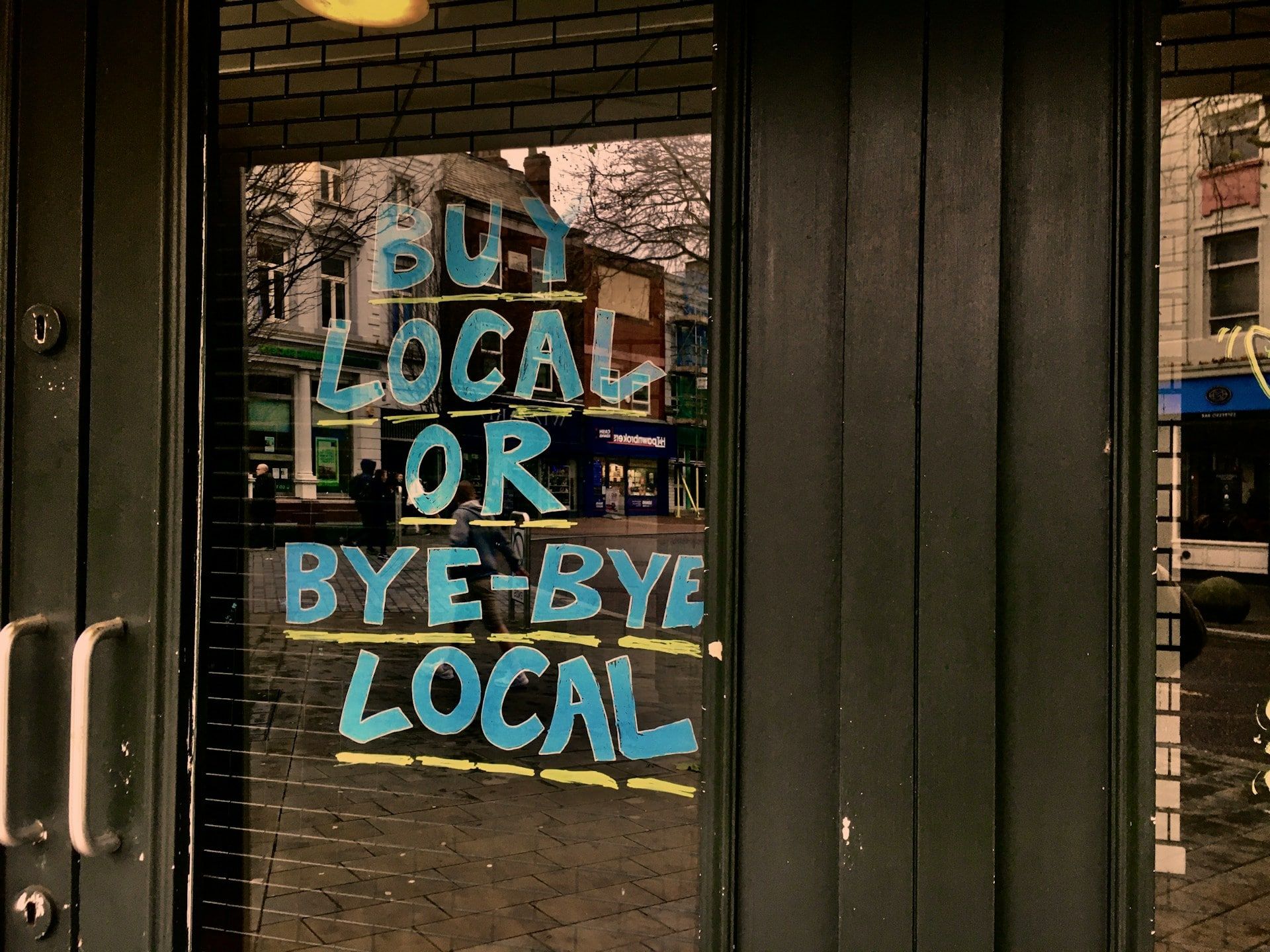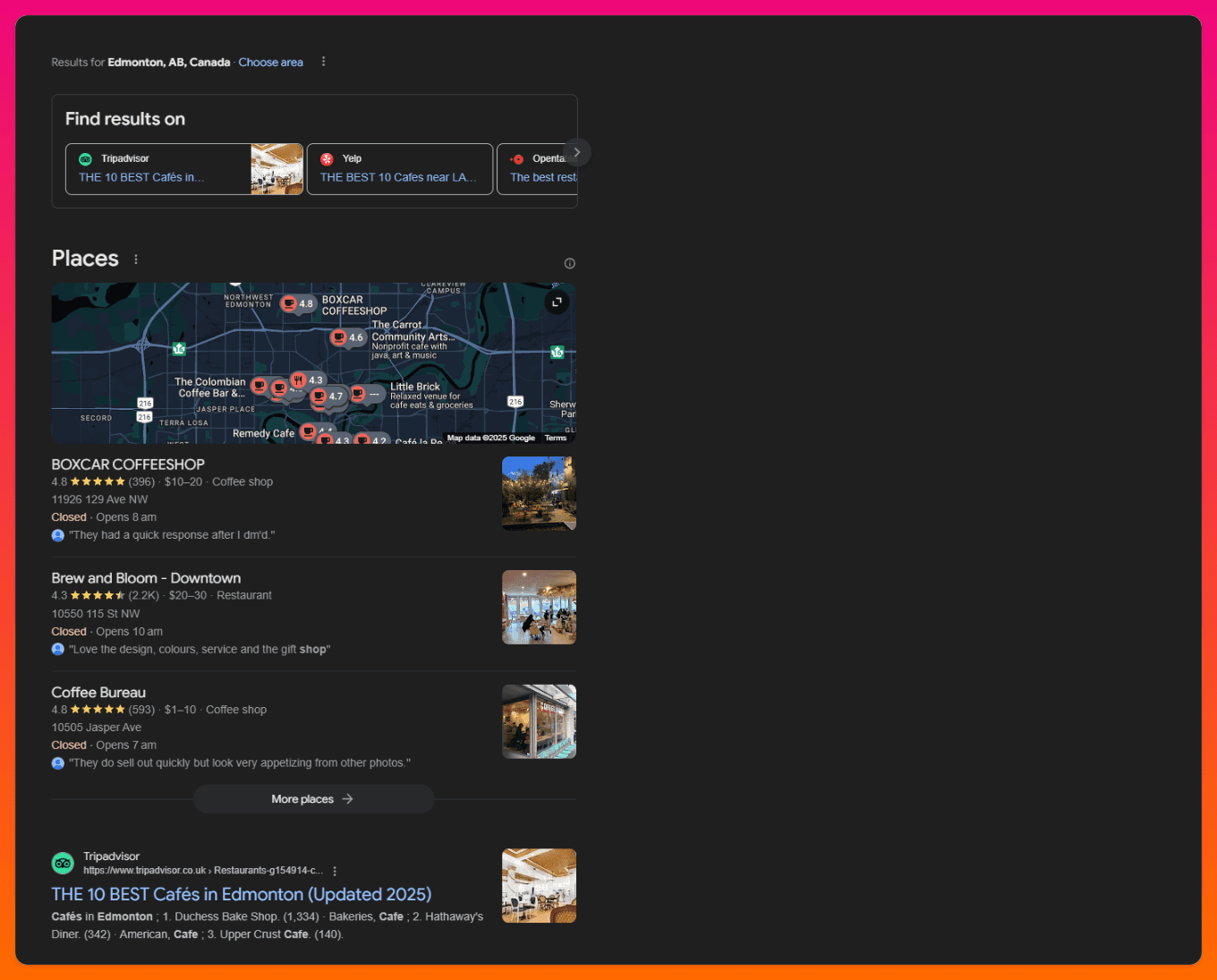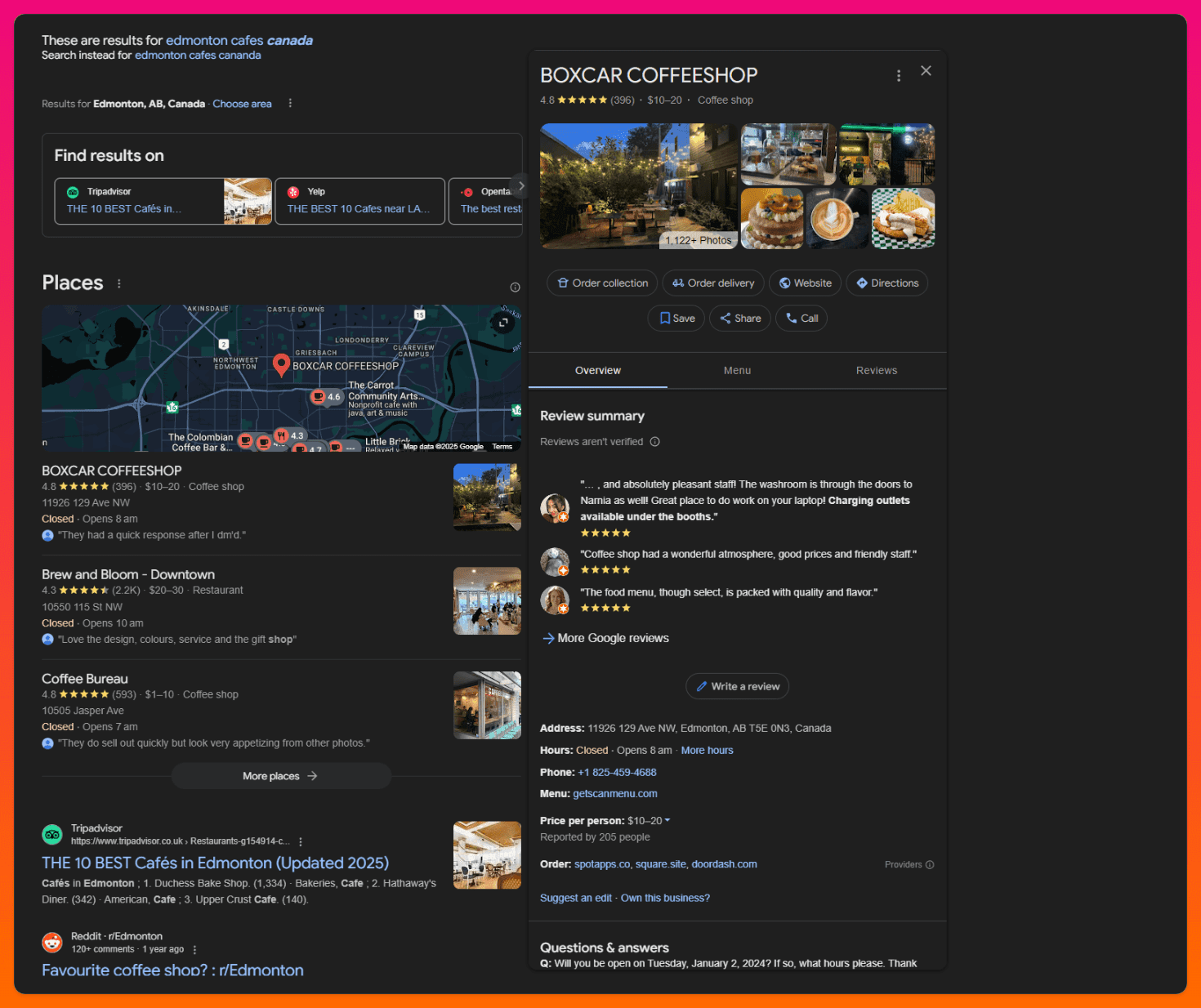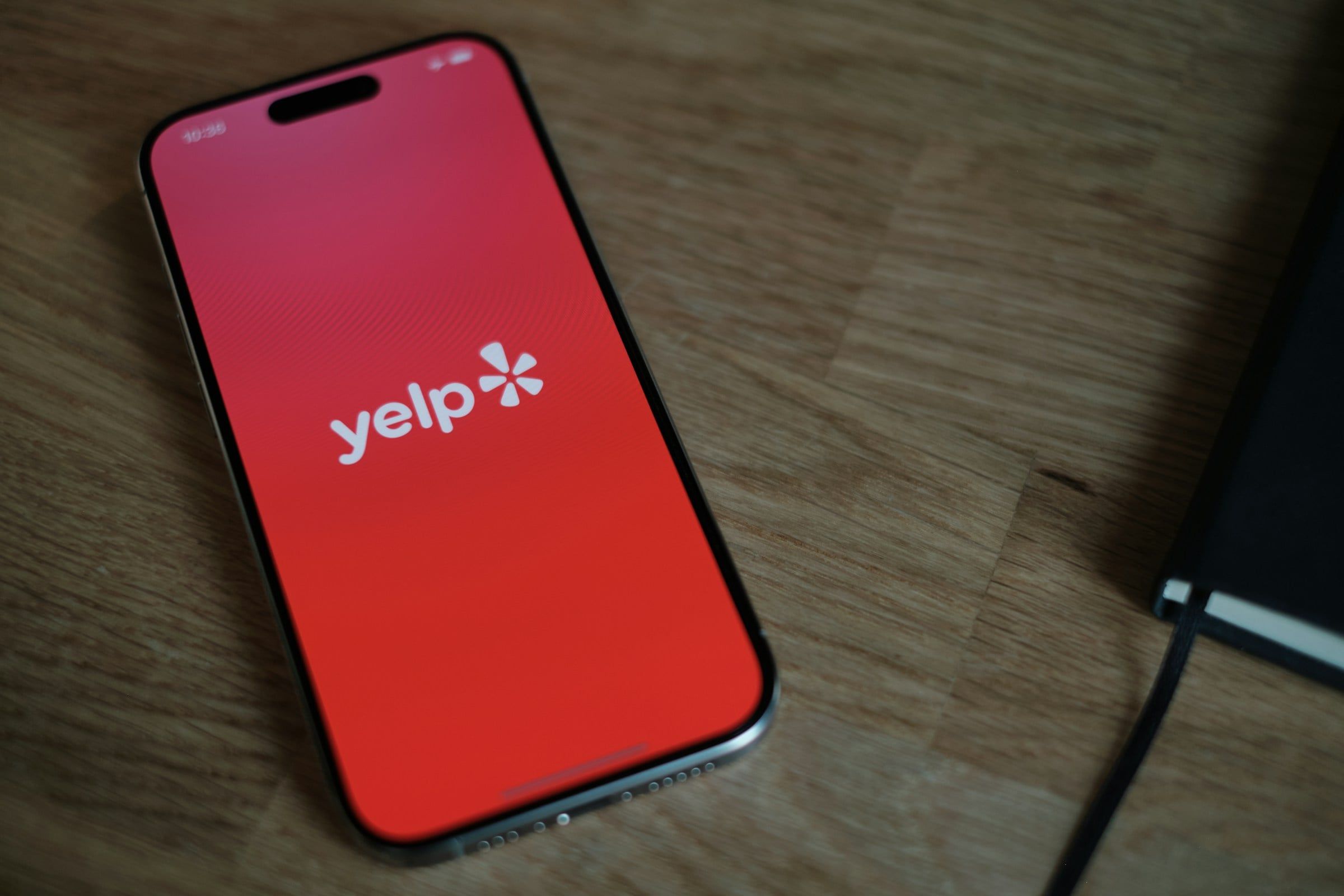How to Build Local Backlinks: Strategies from Your Edmonton SEO Company
by Aaron Janes, Founder

Backlinks.
They're the backbone of any successful SEO strategy, especially if you're an Edmonton business looking to dominate local search results.
Think of them as digital street signs pointing directly to your website. The more signs you have, and the more reputable the streets they're on, the easier it is for customers to find you.
Why are they so important?
Because Google sees backlinks as votes of confidence.
Sure, they're not the be-all-end-all, but when a high-quality website links to yours, it's like they're vouching for your credibility and relevance.
This boosts your website's authority in Google's eyes, pushing you higher in those coveted search rankings. And let's be real, in a city like Edmonton, where the competition is fierce, every advantage counts.
This article guides you to building those powerful local backlinks and making them work for your business. We'll explore proven strategies, share insider tips, and give you the tools to attract those valuable "votes" that will drive more local customers your way.
Let's go.
What are local backlinks?

Backlinks have been a key part of SEO for many years now.
As in the introduction, when a website links to another website, it sends a signal to Google that says the site is trustworthy. After all, every website tries to grow, get more traffic, and become more established.
The more established you are, the better your branding, recognition, and reputation, thus the more successful you'll be.
A business like this won't want to link to spam websites that give visitors a poor experience. Thus, they only link to high-quality websites, and Google rewards this because everyone then gets a positive experience.
Say, for example, your business runs a survey on 10,000 people.
Other businesses, blogs, and people might love what you found, thus they share the results (thus creating a link to your website).
Google sees lots of people linking to your site for whatever topic you surveyed, and now your authority on that topic is increased, and you'll rank higher.
Nice and simple.
However, since you're a business in Edmonton, you'll want to use local backlinks. It's all good getting backlinks from all over the world, but nobody in Australia comes to your cafe daily, uses your restaurant, or sells their house.
Local backlinks tell Google you're active in this area.
It could be a link from the Edmonton Chamber of Commerce, a blog post about the best restaurants in Whyte Ave that's linked to you, or even a citation on an online directory specific to Edmonton businesses.
These links act as a signal to Google, saying, "Hey, this business is not only relevant to the search query, but it's also a key player in the Edmonton community."
For clarity, these links are crucial because:
- Improved local search rankings: When someone in Edmonton searches for "best coffee shops," Google wants to show them the most relevant and authoritative results. Local backlinks play a huge role in determining that authority. Think of it like this: if a bunch of Edmonton-based websites are "vouching" for your coffee shop, Google is more likely to rank you higher in local search results.
- Increased website traffic: Backlinks act like pathways leading people to your website. And not just any people – local people! A link from an Edmonton community blog or a popular local event website will drive targeted traffic from people already interested in what your business offers.
- Enhanced brand credibility: Imagine you're looking for a new dentist in Edmonton. Would you trust a random website or one that's recommended by the Edmonton Journal or the Alberta Dental Association? Backlinks from trusted local sources act as endorsements, building credibility and trust with potential customers.
What are the effective strategies to build local backlinks in Edmonton?

With that understanding of local backlinks in mind, let's talk about how your business can actually start building a proper backlink portfolio.
Here are some proven strategies to bear in mind.
#1 - Optimize your Google Business Profile (GBP)
Head over to Google search whatever business you are.

All the businesses that come here at the top are the most recognized Google businesses at the moment and have a proper Google Business Profile.
If you want to show up here and have authority, you need that profile optimized.
Let's say a food blogger wants to write about the top restaurants in Edmonton. They search, make a list of the top 15, and then go to experience them. If you're not on the list, you're missing out.
Same goes for people searching in the area, too.
For most local businesses, your GBP is the first impression customers have of your business online.
A complete and engaging GBP not only attracts customers directly but also opens doors for valuable backlinks.
Here's how to make your GBP a backlink magnet:
- Nail the basics: Ensure your business name, address, and phone number (NAP) are accurate and consistent across all platforms. This builds trust with Google and potential customers.
- Categorize strategically: Choose categories that accurately reflect your business and help you appear in relevant searches.
- Visuals are key: Add high-quality photos of your products, services, and storefront. A picture's worth a thousand words, right?
- Reviews matter: Encourage happy customers to leave reviews on your GBP. Positive reviews build social proof and can influence potential customers.
- Keep it fresh: Regularly post updates, share special offers, and engage with customer comments. An active GBP shows Google you're a business that cares.
- Link up: Don't forget to link your website and social media profiles to your GBP. This creates a seamless online experience for customers and helps Google understand your online presence.
Take a look at this example of a well-optimized GBP listing for a local Edmonton bakery:

See how engaging and informative it is? That's what you're going for.
#2 - Engage in local Edmonton communities
Edmonton is all about the community spirit. It's buzzing with it, making it a goldmine for local businesses. This means getting involved in your community not only builds brand awareness but also opens doors for valuable backlink opportunities.
Here are some ways to connect with your community and earn those local links:
Join local business organizations
Edmonton has a thriving business community with organizations like the Edmonton Chamber of Commerce, BNI Edmonton, and various industry-specific associations. Joining these groups connects you with other local businesses, potential partners, and, you guessed it, backlink opportunities.
Many of these organizations have member directories or online publications where you can get listed with a link back to your website.
It's a fantastic way to build credibility and attract local referrals.
Participate in community events
From the Edmonton Folk Music Festival to the vibrant farmers' markets, our city is always buzzing with events. Sponsoring or participating in these events can get your business featured on event websites, local news articles, or blog posts, often with a link back to your site.
Connect with local influencers and bloggers
Edmonton has a growing community of influencers and bloggers passionate about our city. Building relationships with these individuals can lead to collaborations, guest posts, or mentions in their content, often with a valuable backlink to your website.
Think about influencers who align with your target audience and reach out to them with genuine collaboration ideas. You might be surprised at the opportunities that arise!
#3 - Create high-quality, locally relevant content

According to Statistica, 44% of people start their buying journey with an online search.
You've probably experienced this yourself. You're looking for somewhere to go or in need of something to buy, so you hop online and search for what's out there.
Maybe you're searching for "best XYZ" or, " best car mechanics," or "places to go in Edmonton" and so on.
The results typically come in the form of blog posts. Many of which not only list amazing products, businesses, and services but also dive into the neighbourhood's history, highlight local breweries, and even recommend nearby shops.
Boom! You've just struck content gold.
That's the power of high-quality, locally relevant content.
It not only attracts readers but also acts as a magnet for local backlinks.
Why? Because other websites, bloggers, and even local media are always on the lookout for valuable resources to share with their audience.
Here's how to create content that gets Edmonton talking and linking:
Develop Edmonton-focused blog posts
Think about the questions your ideal customer might be asking. Are they looking for the best dog parks in Edmonton? A guide to Edmonton's River Valley trails? Or maybe a roundup of the top local coffee roasters?
Create blog posts that answer these questions and provide genuine value to your audience. Don't forget to optimize your content with relevant local keywords like "Edmonton restaurants," "things to do in Edmonton," or "Edmonton events."
Create local resource pages
Think beyond blog posts and consider creating comprehensive resource pages that cater to the needs of your local audience.
Imagine a page dedicated to "Edmonton Small Businesses" with a curated list of local shops, their stories, and website links. Or a resource page on "Edmonton Neighborhoods" with detailed information about each area, including local attractions, schools, and community resources.
These types of pages become valuable assets for your community and attract backlinks naturally.
Offer local news and updates
Keep your finger on the pulse of Edmonton! Share updates about local events, new business openings, and community initiatives, or even highlight the achievements of local entrepreneurs.
Timely and relevant content can attract attention from local media outlets, bloggers, and other websites, leading to valuable backlinks and increased visibility.
By creating high-quality content that resonates with your local audience, you'll not only attract readers but also establish yourself as a valuable resource in the Edmonton community. And that, my friend, is a recipe for backlink success!
#4 - Leverage local citations and directories

Alright, let's talk about citations. No, not the kind you get for parking tickets (hopefully, you're avoiding those!). We're talking about online citations – basically, mentions of your business name, address, and phone number (NAP) on other websites.
Think of citations as your business's digital footprint across the web. They're like those little breadcrumbs that lead customers (and Google!) to your doorstep. And when these citations are consistent and accurate, they work wonders for your local SEO.
Here's the deal: Google wants to provide the most reliable and trustworthy information to its users.
So, when it sees your NAP information consistently listed across various platforms, it says, "Okay, this business is legit." This boosts your credibility and helps you rank higher in local search results.
Here's how to make citations work for you:
- Find the right directories: Start with the big players like Yelp, 411.ca, and Yellow Pages. Then, explore niche directories specific to your industry or Edmonton businesses.
- Consistency is key: Ensure your NAP information is precisely the same across all platforms. Even a small discrepancy (like "St." instead of "Street") can confuse Google and hurt your rankings.
- Claim and optimize: Many directories allow you to claim your business listing and add extra details like photos, hours of operation, and a link to your website. Take advantage of these opportunities!
Think of it like this: each accurate citation is like a mini-backlink, signalling to Google that your business is a trusted and established presence in Edmonton. And the more of these "mini-backlinks" you have, the stronger your online authority becomes.
#5 - Reach out to local media and publications
Getting featured in local media is like hitting the jackpot for backlinks (and brand awareness!). Imagine your business being mentioned in the Edmonton Journal, CTV News Edmonton, or even a popular local blog.
Now, I know what you might think: "My business isn't exactly headline news. Why would the media care?" But trust me, there are more opportunities than you might realize.
Here's how to get on the radar of local media:
Identify relevant media outlets
Start by creating a list of media outlets that resonate with your target audience. Think local newspapers (Edmonton Journal, Edmonton Sun), magazines (Avenue Edmonton), online publications (Edmonton City as Museum Project, Taproot Edmonton), radio stations (CHED, CBC Radio One), and even local TV channels (CTV Edmonton, Global Edmonton).
A little research goes a long way. Browse their websites, see what kind of stories they cover, and find contact information for relevant journalists or editors.
Craft compelling press releases
A well-written press release is your ticket to getting noticed. Highlight what makes your business unique, focus on local angles, and craft a story that's genuinely interesting and newsworthy.
Did your business win a local award? Are you launching a new product or service? Are you involved in a community initiative? These are all potential hooks for a press release.
Build relationships with journalists
Journalists are always on the hunt for interesting stories. Connect with them on social media, attend local events, and build genuine relationships.
Remember, it's not just about sending a press release and hoping for the best. It's about building rapport and becoming a valuable resource for local media.
Think of it like this: you're not just pitching a story; you're building a connection. And when you become a trusted source, those valuable backlinks and media mentions will naturally follow.
How to measure and track your backlink success
Okay, you've put in the work and built those awesome local backlinks… now what?
Well, it's crucial to track your progress to see what benefit your links are having and the kind of return they're bringing to your business.
You see, building backlinks isn't a "set it and forget it" kind of thing. It's an ongoing process that requires monitoring, analysis, and a little bit of fine-tuning along the way.
Why is tracking important?
Think of it like this: you wouldn't plant a garden and then just walk away, hoping for the best, right? You'd check on those plants, water them, and maybe even give them a little fertilizer to help them grow.
The same goes for your backlinks. Tracking your progress helps you understand what's working, what's not, and where you need to adjust your strategy. It's all about making those backlinks work smarter, not harder.
At the end of the day, new websites are growing all the time with increasing authority on which you may want to be featured. Others may start to degrade and lose authority, and you won't want your website associated with them.
This constant and consistent pruning ensures your backlink works for you in the best possible manner.
Tools and metrics to track your backlinks
So, how do we keep tabs on those valuable backlinks? Here are a few tools and metrics to help you out:
Google Search Console
Google Search Console (GSC) is your best friend when understanding how Google sees your website. It provides a wealth of information, including a section dedicated to backlinks. You can see who's linking to you, the anchor text they're using, and even identify any potential issues.
SEO Tools (e.g., Ahrefs, SEMrush, Moz)
These powerful SEO tools offer more in-depth backlink analysis. They can help you assess the quality of your backlinks, track your domain authority (a measure of your website's overall strength), and even spy on your competitors (shhh!).
Key metrics
Here are some key metrics to keep an eye on:
- Referring domains: This tells you how many unique websites link to you. However, this isn't about getting as many as you can. A few quality links from high-authority websites are far better than hundreds of mediocre ones (hence you should never buy them!)
- Backlink quality: Not all backlinks are created equal. A link from a high-authority website is worth more than one from a spammy site.
- Anchor text: This is the clickable text used in a hyperlink. It should be relevant to your content and include your target keywords naturally.
By regularly monitoring these metrics, you'll gain valuable insights into your backlink profile and be able to make data-driven decisions to improve your strategy.